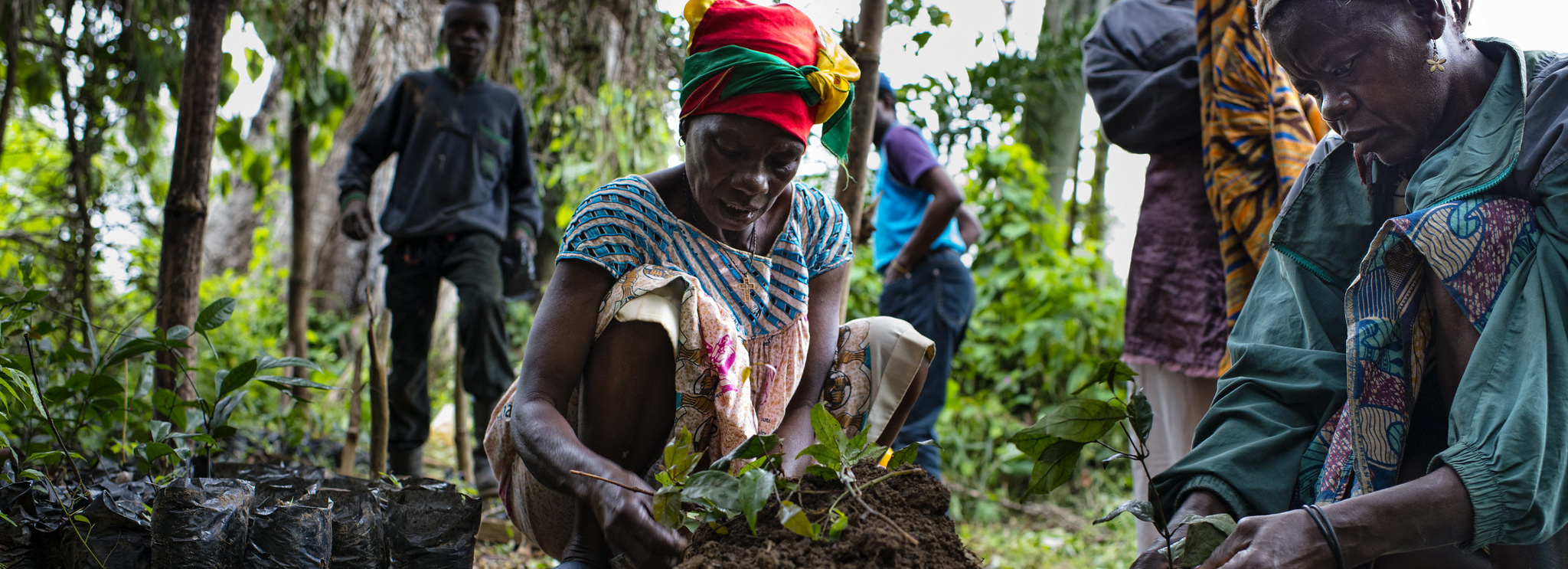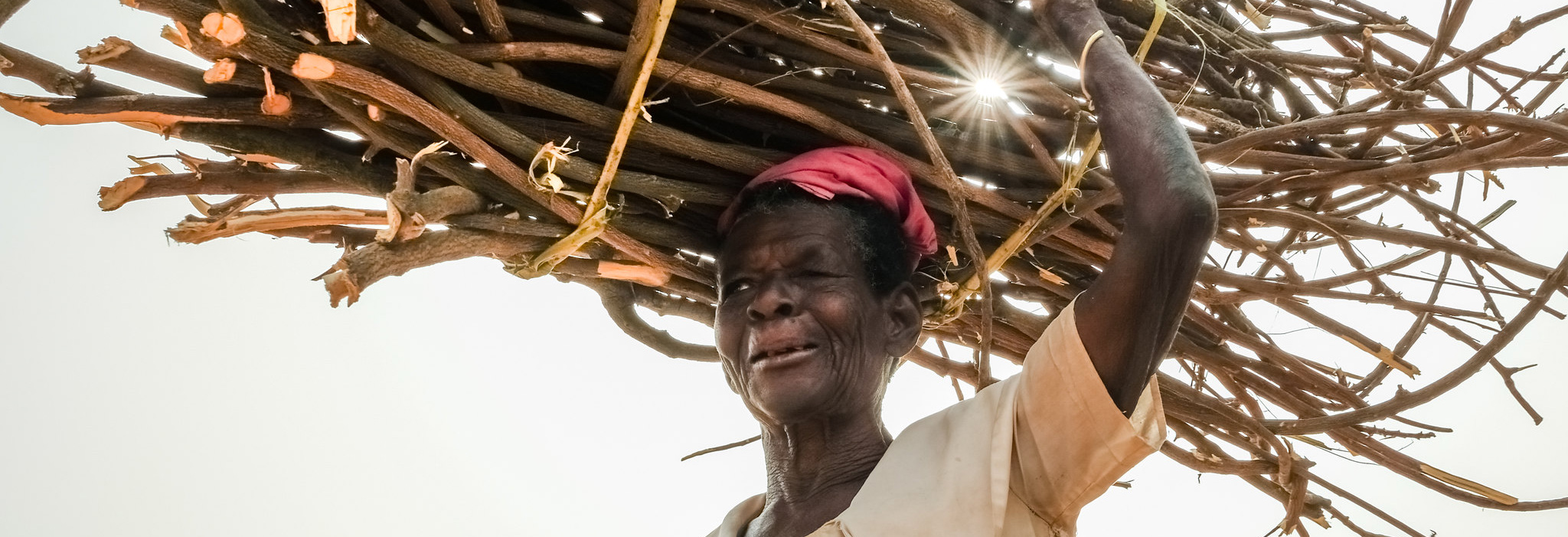Production: CIFOR-ICRAF Communications, Outreach and Engagement Team
Writing: Erin O’Connell, with contributions from Susan Onyango and CIFOR-ICRAF scientists
Proofreading: Sarah Oakes
Design and layout: Mardiyah Alexandra Miller, Perdana Maulansyah Putra and Dodi Iriyanto (diriyanto.com)
Infographics: Mike Rossi (micrografik.com)
Infographic sources: Deforestation and forest degradation, IUCN - IUCN Redlist; Rainforest Animals, Rainforest Action Network; PATSPO Progress Reports 2017-2021; Adapting agriculture to climate change, FAO; Special report: Climate change and land, IPCC; (Peatlands and Climate Change, IUCN; Orange box: Food trees for diversified diets, improved nutrition, and better livelihoods for smallholders in East Africa; Food wastage footprint, FAO; Environmental impacts of food production, Our World in Data; SDG 2, UN; Fa et al. 2016. Differences between Pygmy and Non-Pygmy hunting in Congo Basin forests; Jones et al. 2008. Global trends in emerging infectious diseases; Morse et al. 2012. Prediction and prevention of the next pandemic zoonosis; DRYAD: Sustainable management of community forests in Cameroon, CIFOR-ICRAF; Cattle ranching in the Amazon Region, Global Forest Atlas, Yale School of the Environment; Soybeans, UCS; Sustainable palm oil, Conservation International; The state of the world’s forests 2020, FAO; SDG 1, UN; Facts & Figures, UN Women; Unpublished data.
Photos: Cover: Terraces formed after repeated earthquakes in Sichuan China. Liu Qiankun; Woman carrying vegetables in Yangole, DRC. Axel Fassio/CIFOR; Land restoration at Lake Chad Basin, Chad. TerrAfrica Partnership; Elephants grazing in peatlands at the Padang Sugihan Wildlife Reserve. Rifky/CIFOR; Aerial view of the Amazon rainforest, near Manaus, the capital of the Brazilian state of Amazonas. Neil Palmer/CIAT; Women harvest tea leaves in the Assam North East, India. Amit Ranjan/Unsplash; Wild meat is often sold in markets across the tropics, such as this one in Northern Ghana. Axel Fassio/CIFOR; Dozen of logs are transported to the next stop through Katingan River, Central Kalimantan. Sigit Deni Sasmito/CIFOR; Cocoa production in Cameroon. Ollivier Girard/CIFOR; Women carry firewood near the Gado-Badzéré refugee camp, Cameroon. Arnauld Chyngwa/CIFOR; Woman and child near the town of Sumbawa Besar on the Indonesian island of Sumbawa. Aulia Erlangga/CIFOR; People on rice terraces, Cambodia. Pixabay; A worker at the coffee nursery, Sokoru village, Ethiopia. Ollivier Girard/CIFOR; Benki Piyãko, an Indigenous leader from the Amazon, sang in his native language to close the two-day digital event on biodiversity and planetary health. Pilar Valbuena/GLF; Planting gnetum in Lekié, Centre Region, Cameroon. Stories photos : Amit Ranjan/Unsplash, Axel Fassio/CIFOR, Daniel Tiveau/CIFOR, Fiston Wasanga/CIFOR, Fusion Medical Animation/Unsplash, ICRAF, Mokhamad Edliadi/CIFOR, Ollivier Girard/CIFOR, Patrick Shepherd/CIFOR, Yoly Gutierrez/CIFOR, Yusuf Ahmad/ICRAF
Citation: CIFOR-ICRAF. 2021. CIFOR-ICRAF Annual Report 2020: Building forward better. Bogor, Indonesia: Center for International Forestry Research (CIFOR) and Nairobi, Kenya: World Agroforestry (ICRAF).



















